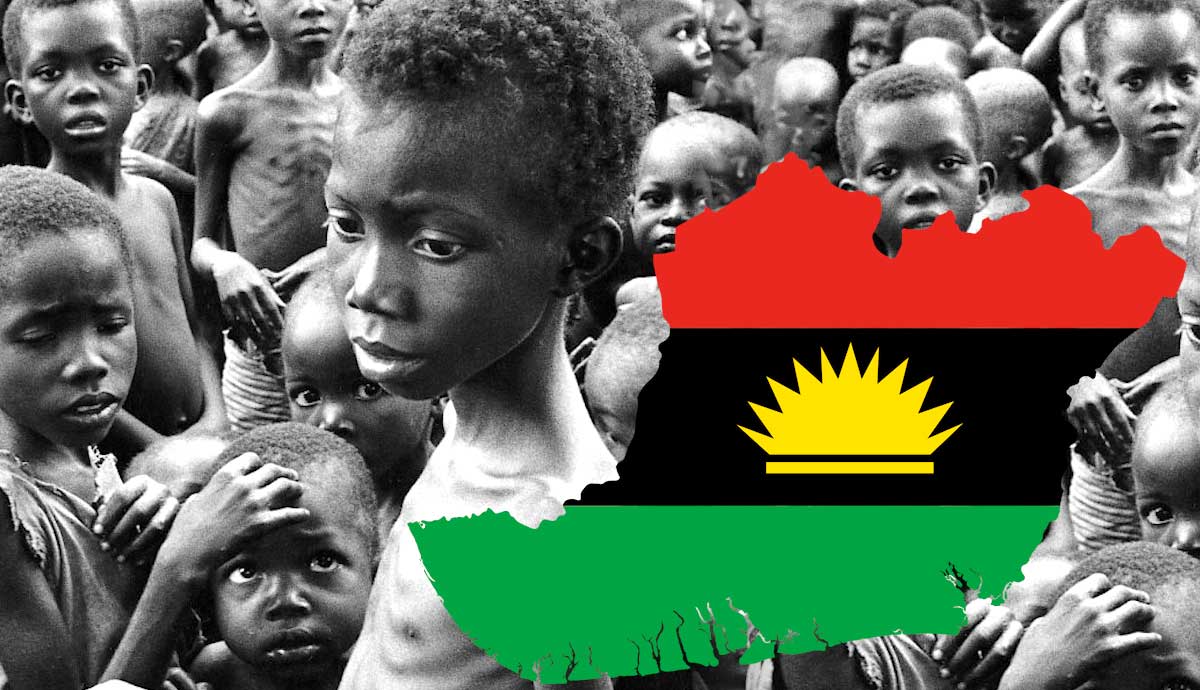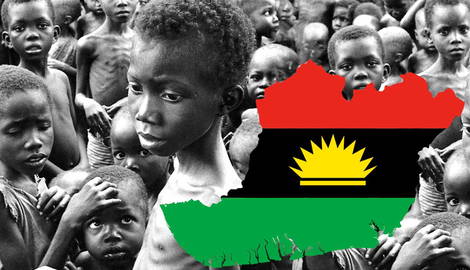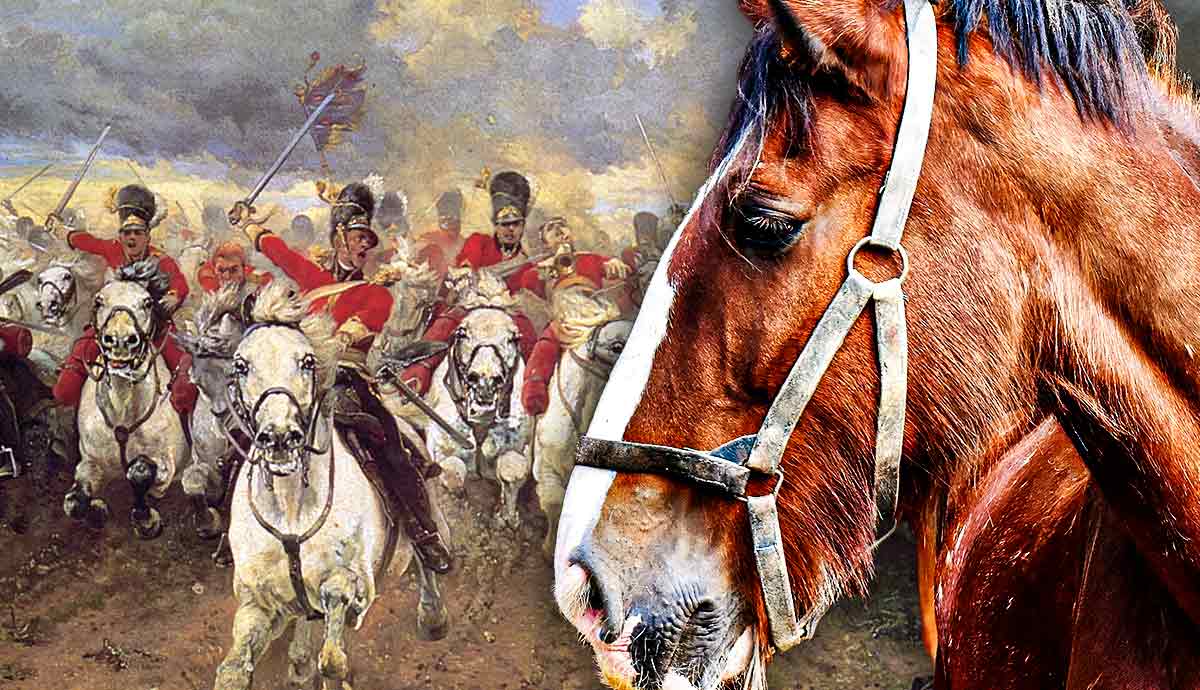
The Nigerian Civil War was a three-year conflict that began in 1967 following years of ethnic tension. The war began when the Igbo-dominated Eastern Region of Nigeria seceded from the federal government and proclaimed the Republic of Biafra. What would follow would become one of Africa’s largest post-colonial conflicts, drawing the attention of the world. After taking a look at the timeline for the conflict and the international involvement in the Nigerian Civil War (often motivated by the desire to control natural resources), what remains is to investigate the most harrowing aspect of the war: the mass starvation in Biafra which unfolded in the final years of the war, as federal forces slowly tightened the net around the encircled Igbo.
The intense suffering caused the establishment and development of numerous humanitarian aid campaigns looking to alleviate the situation. Before the outbreak of the Nigerian Civil War, widespread violence towards the Igbo was seen across the country, with over a million forced to flee to Eastern Nigeria from the North and West. This was the beginning of a campaign that would see the death of two to three million more.
Famine in the Nigerian Civil War

By the start of the Nigerian Civil War, Biafra was already heavily underdeveloped. Years of colonial neglect had left it behind the North and West. What revenue it could generate was from its valuable oil supply, which was still divided unfairly between the federal government and Eastern leadership. Control over oil would be a priority when the war broke out, as Biafra used it to barter for supplies and equipment.
Things would become dire when these resources were lost. Superior Nigerian forces quickly drove back Biafran divisions, seizing key oil terminals at Port Harcourt and Bonny, cutting off Biafra’s lifeline to the rest of the world. With no access to the sea, the newly independent state had no real way to generate revenue. The remaining soldiers and civilians were trapped in an enclave as Nigerian forces slowly pressed inwards.
The New York Times reported that by 1969, over 1,000 children were starving every day. A particular concern was kwashiorkor, caused by a lack of protein. Eastern Nigeria usually imported fish from countries like Norway to supplement their diet, but with no access to imports, they relied on almost exclusively starch their people could harvest themselves. Petitions to the United Nations to alleviate the crisis fell on mostly deaf ears, who saw it as an internal Nigerian affair and so were hesitant to intervene. As the crisis escalated, Biafran leadership realized that humanitarian aid would need to arrive soon to prevent mass famine. Eastern Military governor Chukwuemeka Odumegwu Ojukwu knew that propaganda would be his best way to materialize this aid, a strategy he employed successfully.
Biafra Appeals for Humanitarian Aid

From the start of the Nigerian Civil War, the Biafran government hired public relations firms to win international sympathy. A key campaign highlighted how the Muslim-dominated north was persecuting Christian (specifically Catholic) Igbos in an attempt to win the support of Catholics around the world. As more images of the famine flooded international airwaves, Biafran propaganda painted the struggle in terms of genocide, evoking comparisons to the still-fresh memory of the Holocaust.
These news reports of the crisis were often the first time that many around the world would see mass starvation and deprivation on their screens. This material prompted an outcry among media in almost every country involved in the conflict. Multiple members of the British press resigned their posts, saying they could not continue to support the general silence from media outlets regarding the British government’s conduct in the war. John Lennon famously returned his MBE in 1969, as part of a protest against Britain’s involvement in Biafra and support for the Vietnam War. Most striking was a student from Columbia University, who set themselves on fire outside of the United Nations headquarters in New York.
France, who was actually supplying Biafra with weapons and humanitarian aid, saw an even bigger public outcry. In the midst of demonstrations against the US involvement in Vietnam, protests spawned across the country, in particular because the French government was involved directly. Polls of the general public revealed that the crisis in the Nigerian Civil War was more important to them than Vietnam. However, the secrecy of French policy making and lack of sustainability of the 1968 movement meant that support soon dissipated, without ever effecting any real policy change.
Humanitarian Aid in the Nigerian Civil War

Some humanitarian aid had been sent in the early days of the Nigerian Civil War, but only when the crisis reached a critical point was significant aid sent to Biafra. A great number of organizations, ranging from small and local church groups to recently established non-governmental organizations (NGOs), organized mass drives to provide food and supplies which would be handed over to a team of volunteers to deliver to the enclave.
This would be achieved through the most significant relief effort known as the Biafran Airlift. Over one and a half times as long as the Berlin Airlift, the consistent delivery of supplies to Biafra became the largest civilian airlift in history. Mostly volunteer crews, guided by a few expert pilots and engineers, would regularly fly into the Biafran enclave to deliver food and medicines, usually departing from the Portuguese overseas department of Sao Tome. The mass protests were effective in recruiting large numbers to organize donations and even work with the aid crews themselves within Biafra.

For those who helped fly the aid into the enclave, the journey was often dangerous. Planes would fly into combat zones throughout the Nigerian Civil War, often under heavy fire, to ensure that a steady stream of supplies was delivered. Experts were brought in from around the world to perfect a number of techniques to get supplies into those areas most at risk. It is estimated that the Biafran Airlift saved up to one million lives over the course of the whole conflict.
Unfortunately, a lack of action on behalf of governments meant that this humanitarian aid was not enough to stem the tide of devastation unfolding in the region. By its end, the Nigerian Civil War had taken over three million lives through famine or starvation-related diseases.
Part of this death toll was due to the constant criticism of the humanitarian aid being provided to Biafra. Some blame was given to Ojukwu, who was often accused of trading in food and medicines for weapons to help him continue fighting the war. The greatest hindrance, however, was the Nigerian government itself. Federal leader Yakubu Gowon made constant claims that aid planes were being used to smuggle in weapons, which is why they were sometimes targeted during supply runs.

The government was also happy to use starvation as a tactic to lower enemy morale, simultaneously downplaying the scale of the crisis while also arguing it was a necessary by-product of the civil war. The first of these claims was parroted by British, Soviet, and US officials whenever they tried to dampen down domestic protests.
The forced neutrality of some countries and organizations also caused significant friction among those working for them. The biggest confrontation came with the French Red Cross, whose members consistently complained to the International Red Cross and French government about their inability to interfere when they saw atrocities being carried out. When the war ended, many of those working in the aid effort for the Red Cross throughout the Nigerian Civil War resigned from their posts. Some of the doctors involved would go on to form their own organization, today known as Médecins Sans Frontières.
The organization of humanitarian aid boosted the profile and reach of a number of NGOs. The crisis in Biafra was one of the first large campaigns run by groups like Oxfam, who were able to translate many of the skills they had learned throughout the conflict into future campaigns. Unfortunately, since few movements would captivate the public’s image like the relief operation to Biafra, subsequent famines and other humanitarian disasters would not draw as much of the public’s attention as the Nigerian Civil War had done, international aid organizations having to continuously adapt to fill greater roles as time wore on.

Despite the victorious Gowon proclaiming a blanket “forgetting” of conduct during the Nigerian Civil War, the legacy of the conflict would still run deep in Nigeria and around the world, even up to the present day. Accusations of genocide have been consistently levied against the Nigerian government, as well as the governments of any foreign powers which aided it, in particular Britain. Nevertheless, the disaster that unfolded was responsible for the development of some of the world’s most important humanitarian aid organizations today.








